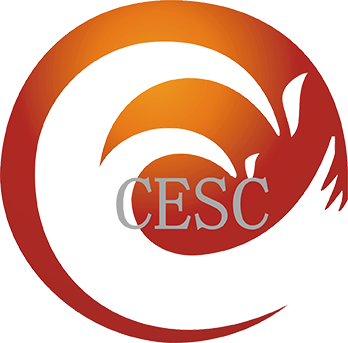- 原文
- 譯文
生物醫學工程類英中對照格式

The biologically determined duration of human life should beyond doubt be at least 110 years; some data suggest it should be 150 years. In reality though, the mean duration of human life does not reach even the middle of this span. Whether there has ever been that “golden age” of humankind when, as told by the Biblical sources, people did reach that age – it is hard to tell. The 80-year mark is not reached by 65% of people, 90% do not reach 90 years, and only a few live beyond their centenary. Even if human beings avoid illness and injury in their whole life, they still inevitably die because of “old age”. But why, in some cases, this “old age” takes 60-year-olds, while in other cases, it spares 90-year-olds? What is the basis of ageing?
Many authors addressing these questions only point at life-long contamination of the body, its self-intoxication as it were. But what are the mechanisms of the subsequent disorders? What does the immune system do – our principal guardian of Health that is closely linked to the quality of life?
Indeed, ageing is accompanied by certain changes in the immune system among others. They affect all of its components: stem cells, Т- and B-lymphocytes, macrophages. Since early childhood, the “thymic clock” starts to gradually slow down, which is observed as the lower proliferative activity of Т-cells; their worsening effector and helper functions make one susceptible to infections and malignancies (their rates are known to be age-related). An old person is indeed increasingly vulnerable to infections, which become to be among the principal direct causes of death. Respiratory infections and pyelonephritis are particularly frequent. With advancing age, higher rates are seen also for a number of other diseases, such as cardiovascular pathology, tumours, diabetes, and dementia. These changes taking place in the body are often called “age-related” or “normal for this age”.
Immunodeficiency implies a less strict control of abnormal mitoses, cell divisions and formation of tumour cells. They occur in the body on a constant basis and quite frequently at that; however, possessing a foreign antigenic structure, they immediately are “spotted” by the immune guardians and exterminated on the spot. If these guardians “miss” them the moment they appear and fail to exterminate them on time, their antigenic structure is recognized as “own” not before long, and, according to fundamental biological principles, the production of these antibodies is blocked. The outcome of this body-tumour fighting becomes predetermined.
毫無疑問,生物學決定的人類壽命至少可以達到110年;部分資料表明應為150年。但實際上,人類平均壽命甚至還未達到這種時間跨度的一半。如圣經原始資料所述,人類曾經達到過這種年齡,但人類是否存在那樣的“黃金時代”,則難以說清楚。65%的人們壽命不足80歲,90%的人們不足90歲,僅有很少的人們能夠長逾百歲。即使人的一生能夠避免疾病和傷害,仍不可避免地因“老年”而去世。但是,為什么在某些情況下60歲即已稱為“老年”,而在其他情況下其可以延長到90歲呢?年齡老化的基礎是什么?
許多作者將這些問題的答案指向了人體的終生污染,即自我中毒。但隨后的紊亂機制是什么呢?與我們生命質量密切相關的主要健康衛士 – 免疫系統的作用是什么?
實際上,除其他變化外,年齡老化還伴隨著免疫系統的特定變化。這些變化對免疫系統各個組成部分均產生影響:干細胞、Ò- 和B-淋巴細胞、巨噬細胞等。自幼童時期,“胸腺時鐘”開始逐步減速,這可以視作 Ò- 細胞增殖活動趨緩;其不斷惡化的效應器和助手功能使得人們易患感染和惡性腫瘤(已知其發病率與年齡相關)。老年人確實越來越容易受感染影響,其正在成為導致死亡的主要直接原因之一。呼吸系統感染和腎盂腎炎的發病率尤其頻繁。隨著年齡的老化,其他許多疾病的發病率也逐步升高,例如心血管病變、腫瘤、糖尿病和癡呆等。人體的這些變化通常都被稱作“老年性”或“該年齡段常見”的變化。
免疫缺陷意味著對異常有絲分裂、細胞分裂和腫瘤細胞形成的控制力度減弱。他們不斷在體內生成,而且生成的頻率較高;但是,由于其攜帶了外來抗原結構,免疫衛士能夠立即“發現”他們,并立即加以消滅。如果這些衛士在其形成時“錯過”了他們,則無法按時消滅,他們的抗原結構被視作“自身”不久前形成的,而根據基本的生物學原理,隨后不會產生針對他們的抗體。這就預先確定了人體 – 腫瘤抗爭的結果。
相關閱讀















